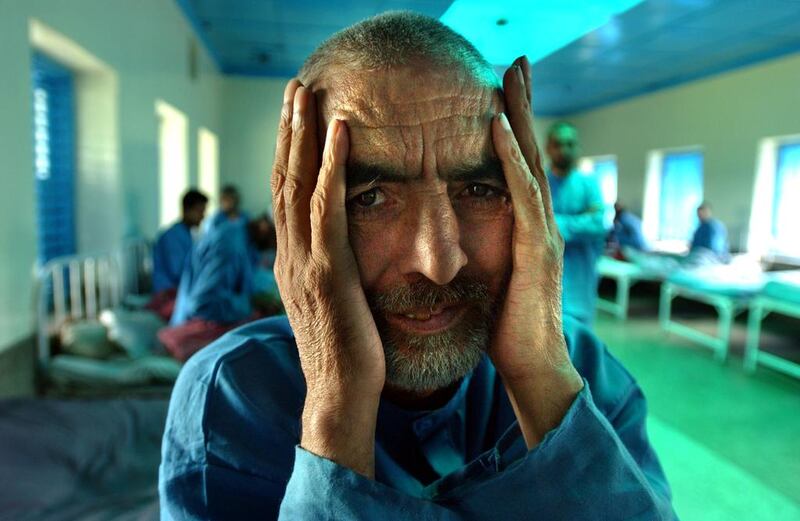"Bala dalaa.” (“Stop being spoiled.”) This is what a young man who visibly struggles with anxiety and panic attacks hears every time he expresses the need for a break, for help and understanding.
As the only son of a divorced mother and with three sisters, Mr A is under a lot of pressure to provide for the women in his family and be successful.
When he recently got promoted, his family was overjoyed and celebrated the extra money that would be coming in, while he was shaking with fear and anxiety.
He started to do things that jeopardised his new position. He started to lose weight and became more and more ill and stressed.
In Arabian culture for many families, the man must be the pillar and must provide, and if he doesn’t, he is a “failure”. It was painful to watch my friend struggle. But the idea of going to a psychologist or psychiatrist was, to him, like admitting he is “a loser and not a man”.
As reported in The National this week, there is a great need for more mental health services and rehabilitation services, whether it be for individuals or couples or families. Support groups and other professional help can turn people's lives around. Yet the stigma of mental health issues persists in the UAE and in most parts of the Arab world.
However, the world’s first psychiatric hospital was built by Muslims in Baghdad in AD705, followed by similar hospitals in Egypt and Syria.
There are so many important mental health contributions from Muslim scholars, such as Ahmed Al Balkhi (AD850-934) who first introduced concepts of mental health and mental hygiene in his book, Masalih Al abdan wa al anfus (Sustenance for Body and Soul). One of his famous lines is: "If the nafs – psyche – gets sick, the body may also find no joy in life with development of a physical illness."
People suffer in silence, and often in isolation, from conditions ranging from depression to addiction, traumas, anxiety and obsessive behaviour. To avoid being seen at a professional centre or clinic dedicated to mental health, some have been turning to life coaches, which is a fad. While there are some really good ones, too many are just not qualified to help others even if they have the best intentions. They may even cause more hurt than help.
One day, I simply said to the anxious Mr A: “You know, it is OK to say, ‘No, this is not for me. I have a choice’.”
This sentence was typed in WhatsApp – it wasn’t even a real conversation – but it did something. It was somehow something that he needed to hear – or read.
He became calmer, and the next day went to his bosses and said: “I am grateful for this new more senior job, but I am not ready. I want my old job back until I am ready to handle this extra responsibility. I hope you understand.”
His family was horrified when they heard this, as there would be a salary cut. But his honesty earned him the respect of his bosses, who gave him a month off to just relax and come back either to the new position or to the old one. It was his choice, they said, and that freed him from a lot of his anxiety.
In this one-month break, he went to a psychiatrist – actually two different ones – to get to the heart of the issues that are plaguing him. He is back to work now, at the new senior position, but is dealing better with everything and reacts differently to stress.
Journalists sometimes play the role of a sort-of therapist. Often, the people we meet just want to be heard. I’ve found that after the interview is finished, the rest of the time it is just me listening to the person. Sometimes they will cry as they relate a painful episode in their life.
Psychologist Zick Rubin identified this is as the “stranger-on-a-train” phenomenon, in which we disclose personal information to people we don’t know and probably won't see again.
Out of kindness and patience, we should stop from time to time to listen to some of these “strangers” – or friends or family members. If they are repeating a story, then perhaps there is something in it that needs resolving. Telling someone “go see a psychiatrist” may get a defensive, negative reaction. One way around it is for you to take them with you.
We detox our bodies regularly, and there is nothing wrong with detoxing our thoughts and habits as well.
rghazal@thenational.ae
On Twitter: @arabianmau





